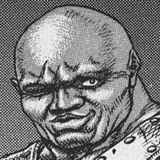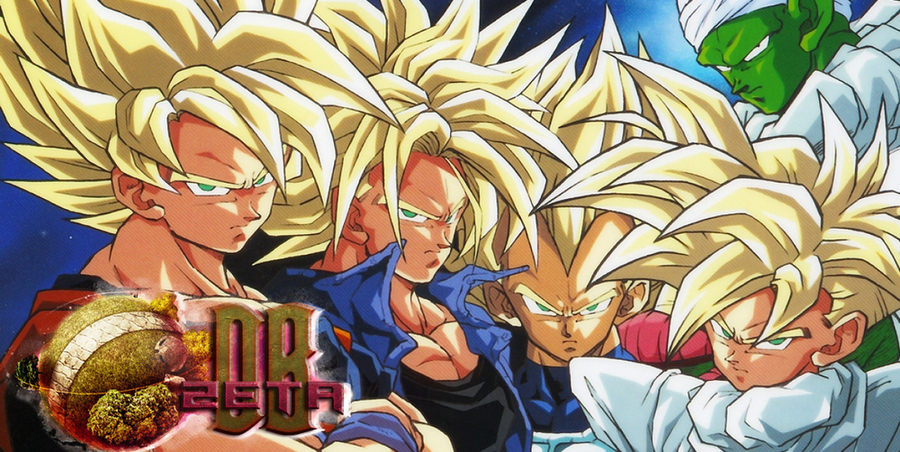- Joined
- May 31, 2015
- Messages
- 27,967
Seems about time to reread the manga in full, considering it's probably as close to finished as we may ever get now  . I'll use this thread as a journal of sorts whenever having completed a relevant chunk of the story to dissect as well as discuss anything people wish to on that part of the story. Just finished volume 3 (ie. completed the Black Swordsman Arc and just got up to
. I'll use this thread as a journal of sorts whenever having completed a relevant chunk of the story to dissect as well as discuss anything people wish to on that part of the story. Just finished volume 3 (ie. completed the Black Swordsman Arc and just got up to  getting his money's worth), so might as well layout my thoughts on the Black Swordsman Arc as a whole.
getting his money's worth), so might as well layout my thoughts on the Black Swordsman Arc as a whole.
The arc contains some questionable elements at the start, but most of them are at least contained in the first chapter and aren't entirely without explanation. Guts fucking the Apostle that killed Corkus seems weird, but not too out of character when he'd given up on saving Casca at that point and should know that was a good way to get them vulnerable. There's also Guts still not liking people touching him, but I can buy he only got over those close to him like Casca doing so and the Eclipse certainly prevented him from extending that courtesy to everyone. A continuity error less explainable would be no spirits haunting Guts when in the prison despite the emphasis placed on that in the next chapter. I guess with an Apostle nearby, the spirits didn't consider it worth it or something?
One moment from Guts I really like in this arc beyond the action scenes and iconic speeches would be when he says "It's your life," when presenting the option of suicide to Theresia with how it foreshadows the reveal of his character arc in the Golden Age and what being able to make one's own choices in life means to him.
On the subject of comparing characters to how they'd be portrayed later on, Femto is a notable example with his appearance here being very much that of a moustache-twirling villain with a superiority complex. Considering Miura did seem to have some idea of how he'd write him in the Golden Age though, I wouldn't say it's that inconsistent when it seems more like Femto trying to put on an act, since he was far from losing his human emotions after his transformation.
Even though Guts' more edgy and cynical nature in this arc makes sense with the reveal of the Eclipse, I can concede it doesn't make him a character the audience would be invested in without further context when he at times seems more violent and sadistic than some of his enemies. Fortunately, Miura was smart enough to present a moral anchor of the arc with Puck who, along with being an important support character, he's in many ways an insert for both the audience and Miura with how he questions many of the events going on and Guts' decisions as well as offers hints there's more to Guts' character than we initially see. Shame Puck's relevance would quickly fade after the Conviction Arc, but for now he did his role in the plot very well.
The villains in the arc aren't too deep, with the Snake Baron being one-dimensionally evil, but the Count serves his role well in presenting the darkness of humanity that can lead someone to become an Apostle in the right circumstances. Probably one of the more sympathetic Apostles within the manga.
As for the common citation that people should read the Golden Age first to avoid being spoiled, I wouldn't really agree. That's coming from the perspective of wanting to be excited rather than taking into account what the author's intent was. If anything, knowing the fate that awaits Guts and Griffith adds a layer of tragedy to the Golden Age by knowing that, despite how well their friendship develops and layers of them that are explored, we know their destinations which adds more impact to every lighter moment between them and mystery in how the friendship was severed. On the subject of mystery, the sense of mystery the Black Swordsman Arc provides is one reason to read that before the Golden Age with how it establishes several plot threads to hook the audience and dives right into the dark tone of the setting, the former of which would've been quite standard beats with little surprise if viewed after the Golden Age.
That said, the arc has its shaky moments, but presents many aspects such as the potential layers behind Guts' character, the tone and the fantastical elements well enough to be a fairly good start. I'd rate it about a 6.5/10.
Considering volume 3 ends just before Guts' struggle snuggle with Lord , I'll comment on the start of the Golden Age after the next volume most likely.
, I'll comment on the start of the Golden Age after the next volume most likely.
 . I'll use this thread as a journal of sorts whenever having completed a relevant chunk of the story to dissect as well as discuss anything people wish to on that part of the story. Just finished volume 3 (ie. completed the Black Swordsman Arc and just got up to
. I'll use this thread as a journal of sorts whenever having completed a relevant chunk of the story to dissect as well as discuss anything people wish to on that part of the story. Just finished volume 3 (ie. completed the Black Swordsman Arc and just got up to The arc contains some questionable elements at the start, but most of them are at least contained in the first chapter and aren't entirely without explanation. Guts fucking the Apostle that killed Corkus seems weird, but not too out of character when he'd given up on saving Casca at that point and should know that was a good way to get them vulnerable. There's also Guts still not liking people touching him, but I can buy he only got over those close to him like Casca doing so and the Eclipse certainly prevented him from extending that courtesy to everyone. A continuity error less explainable would be no spirits haunting Guts when in the prison despite the emphasis placed on that in the next chapter. I guess with an Apostle nearby, the spirits didn't consider it worth it or something?
One moment from Guts I really like in this arc beyond the action scenes and iconic speeches would be when he says "It's your life," when presenting the option of suicide to Theresia with how it foreshadows the reveal of his character arc in the Golden Age and what being able to make one's own choices in life means to him.
On the subject of comparing characters to how they'd be portrayed later on, Femto is a notable example with his appearance here being very much that of a moustache-twirling villain with a superiority complex. Considering Miura did seem to have some idea of how he'd write him in the Golden Age though, I wouldn't say it's that inconsistent when it seems more like Femto trying to put on an act, since he was far from losing his human emotions after his transformation.
Even though Guts' more edgy and cynical nature in this arc makes sense with the reveal of the Eclipse, I can concede it doesn't make him a character the audience would be invested in without further context when he at times seems more violent and sadistic than some of his enemies. Fortunately, Miura was smart enough to present a moral anchor of the arc with Puck who, along with being an important support character, he's in many ways an insert for both the audience and Miura with how he questions many of the events going on and Guts' decisions as well as offers hints there's more to Guts' character than we initially see. Shame Puck's relevance would quickly fade after the Conviction Arc, but for now he did his role in the plot very well.
The villains in the arc aren't too deep, with the Snake Baron being one-dimensionally evil, but the Count serves his role well in presenting the darkness of humanity that can lead someone to become an Apostle in the right circumstances. Probably one of the more sympathetic Apostles within the manga.
As for the common citation that people should read the Golden Age first to avoid being spoiled, I wouldn't really agree. That's coming from the perspective of wanting to be excited rather than taking into account what the author's intent was. If anything, knowing the fate that awaits Guts and Griffith adds a layer of tragedy to the Golden Age by knowing that, despite how well their friendship develops and layers of them that are explored, we know their destinations which adds more impact to every lighter moment between them and mystery in how the friendship was severed. On the subject of mystery, the sense of mystery the Black Swordsman Arc provides is one reason to read that before the Golden Age with how it establishes several plot threads to hook the audience and dives right into the dark tone of the setting, the former of which would've been quite standard beats with little surprise if viewed after the Golden Age.
That said, the arc has its shaky moments, but presents many aspects such as the potential layers behind Guts' character, the tone and the fantastical elements well enough to be a fairly good start. I'd rate it about a 6.5/10.
Considering volume 3 ends just before Guts' struggle snuggle with Lord
Last edited:


 .
.